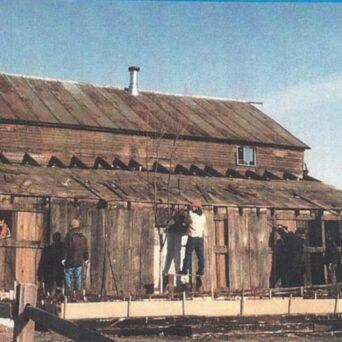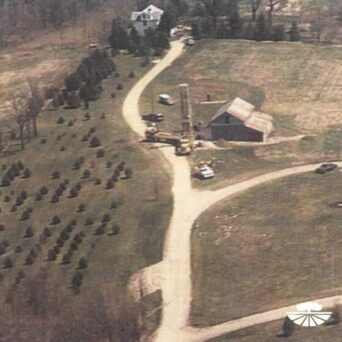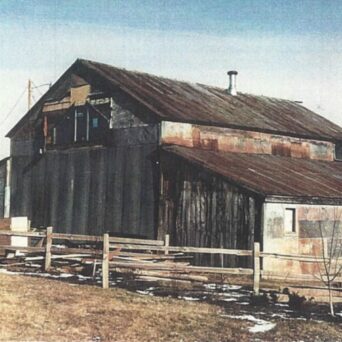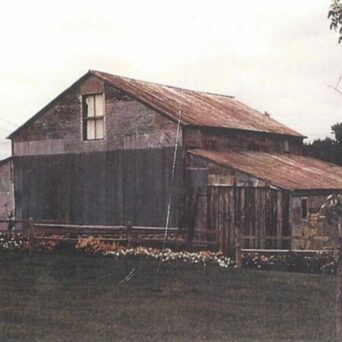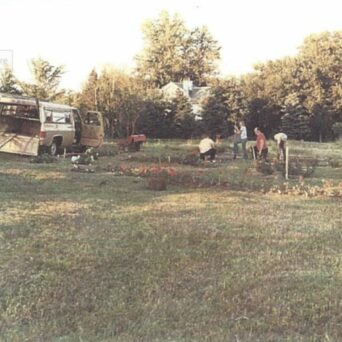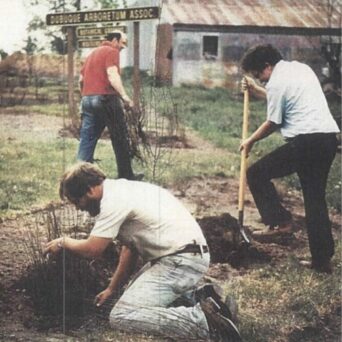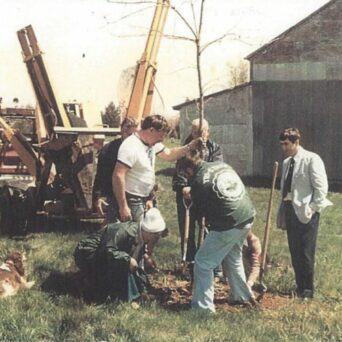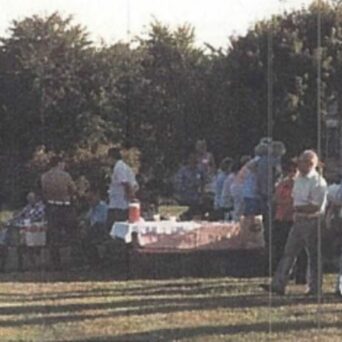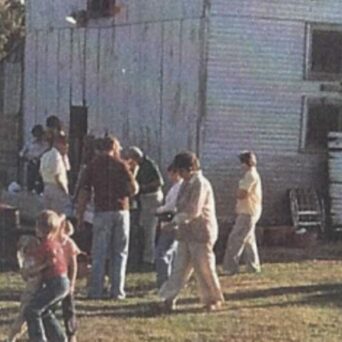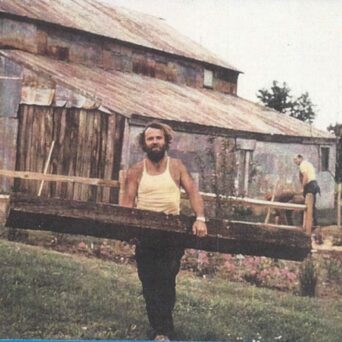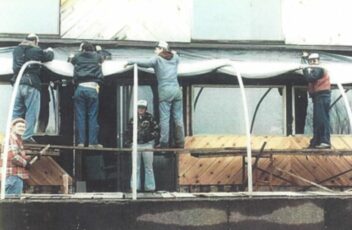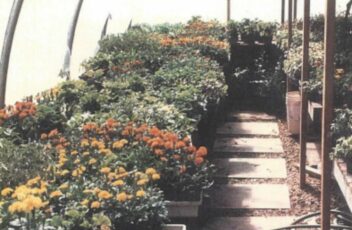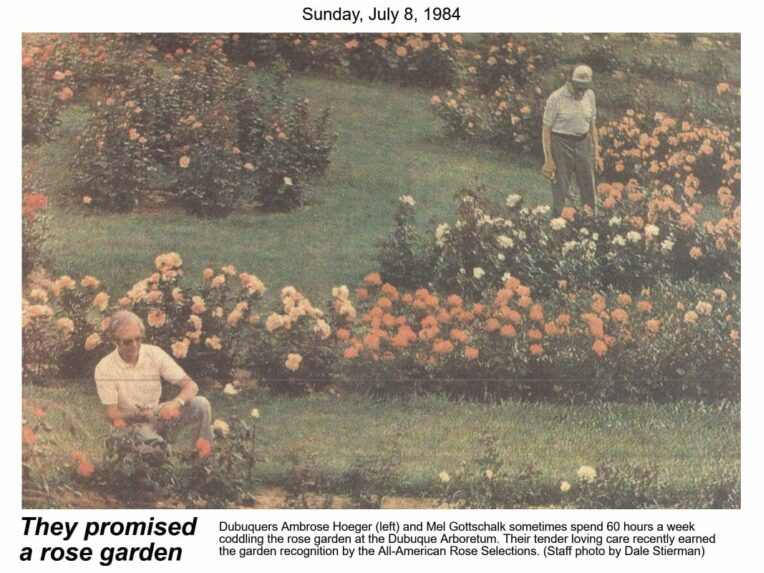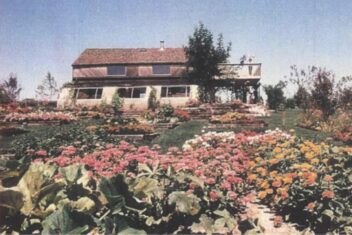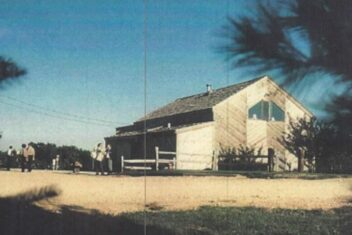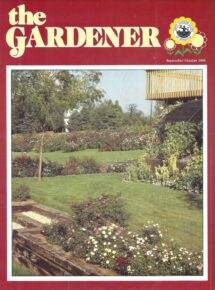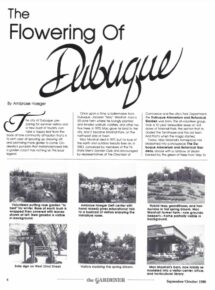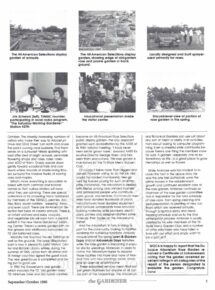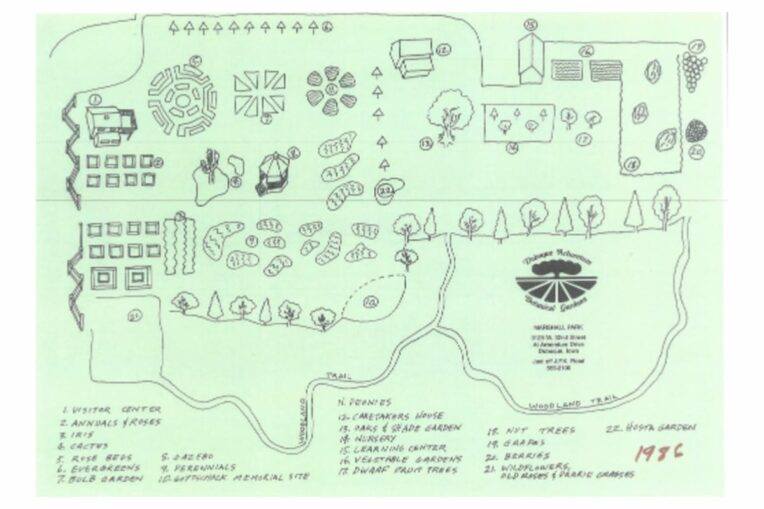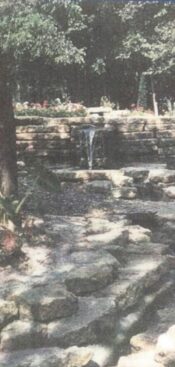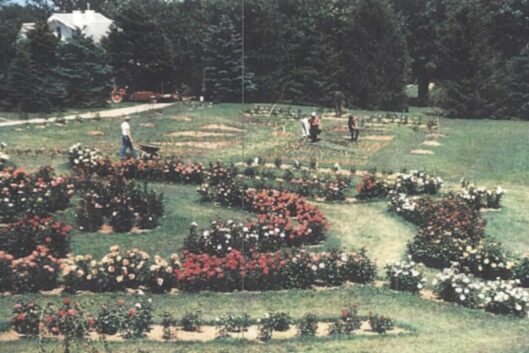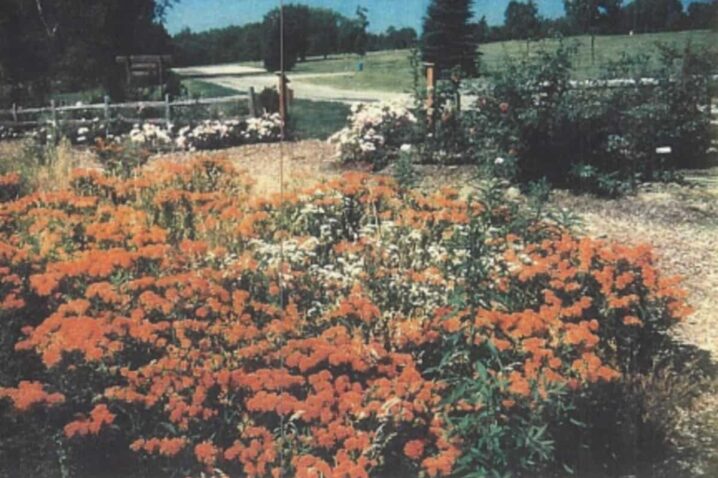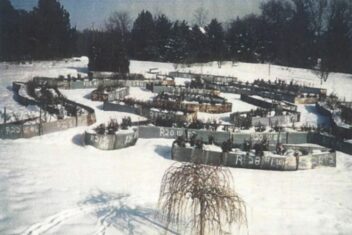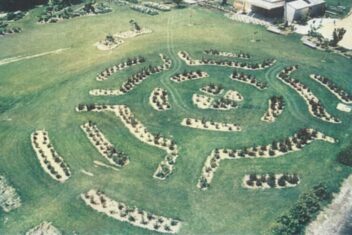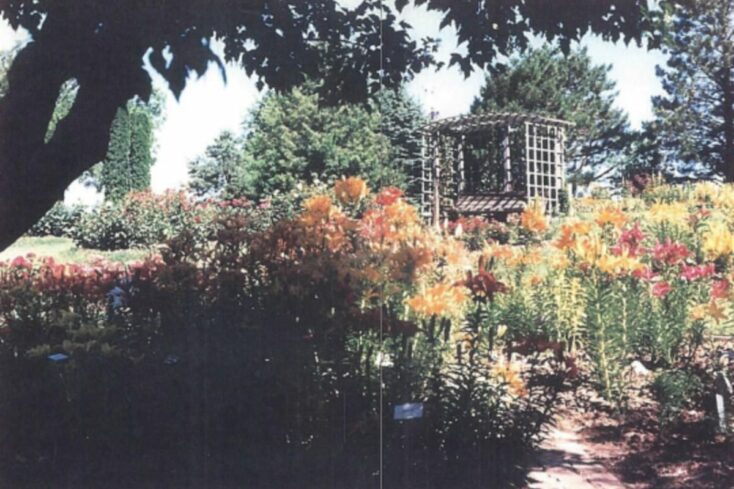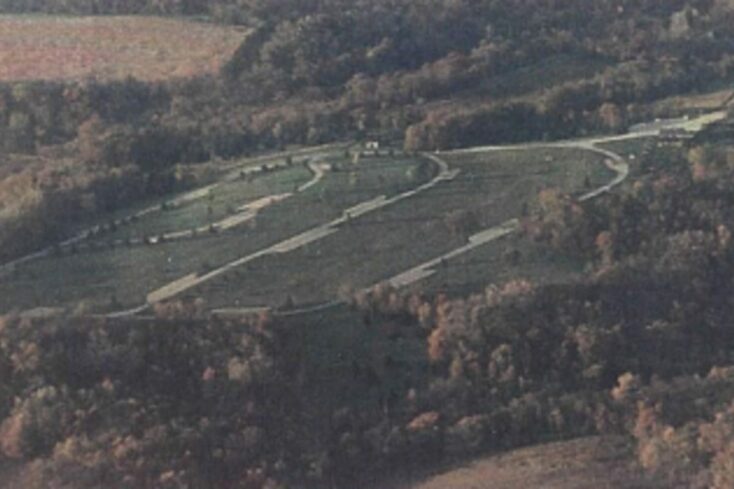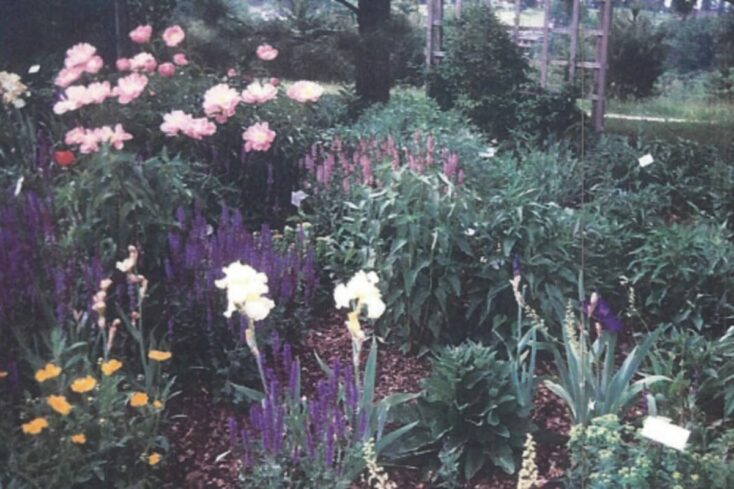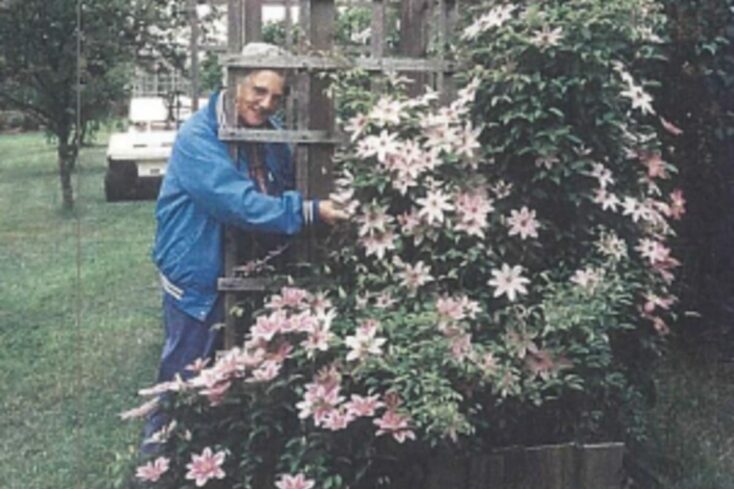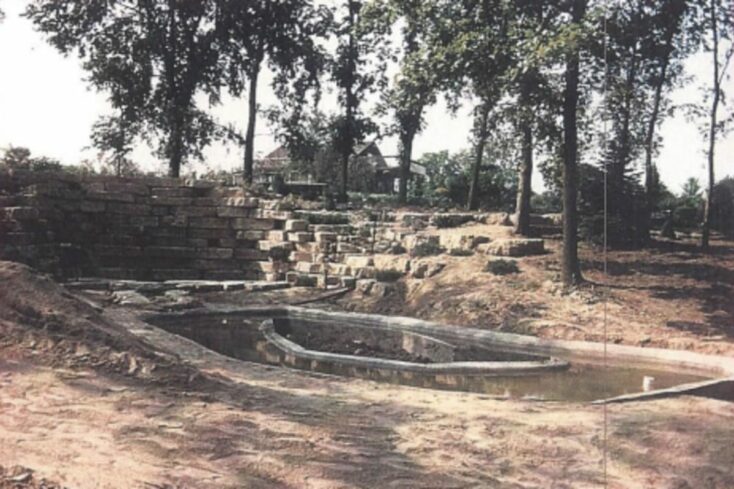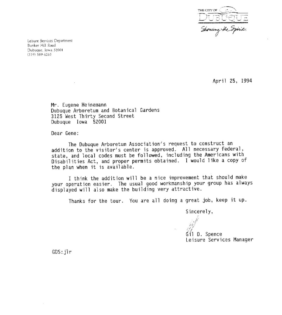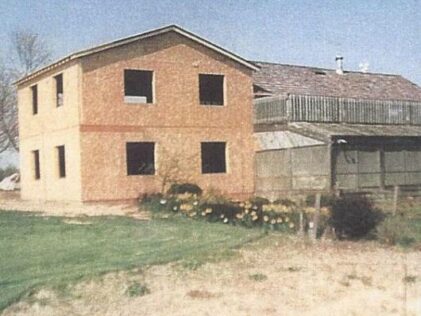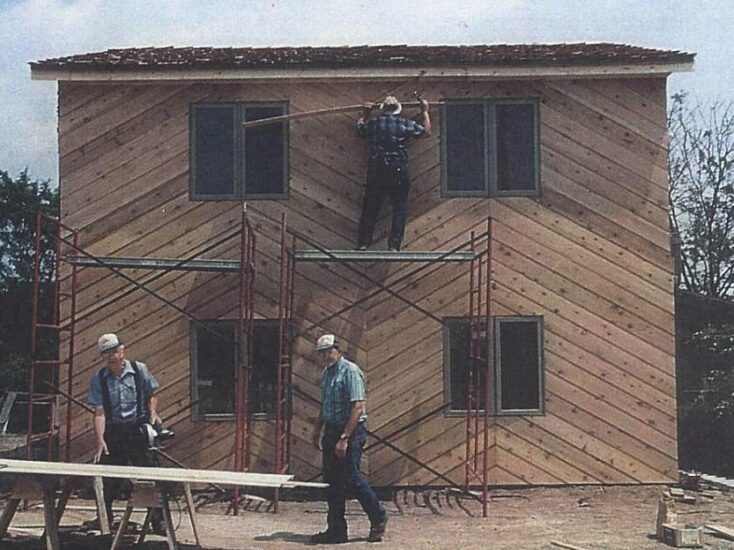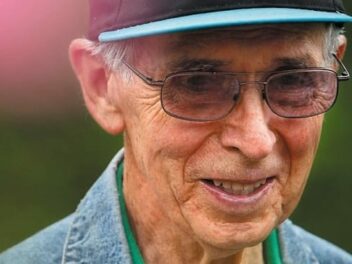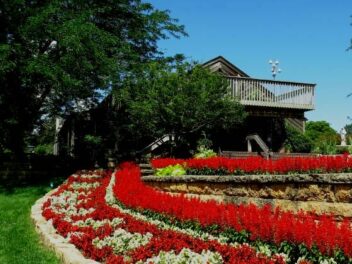History
THE EVOLUTION OF AN ARBORETUM + GARDENS
1975
Land donated: the beginning
I thought it was about time someone did something for the ol' town. So many take so much from Dubuque, but leave so little behind.”
-JACKSON (MAC) MARSHALL
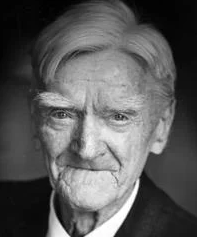
In 1975, “Mac” Marshall (1894-1977) donated 51 acres of land -- 36 acres of meadow and about 15 acres of walnut timber -- to the City of Dubuque with three stipulations:
- that the land would always be used as a park
- that he could reside in the farmhouse whenever he wanted
- that city government begin developing the land within a year
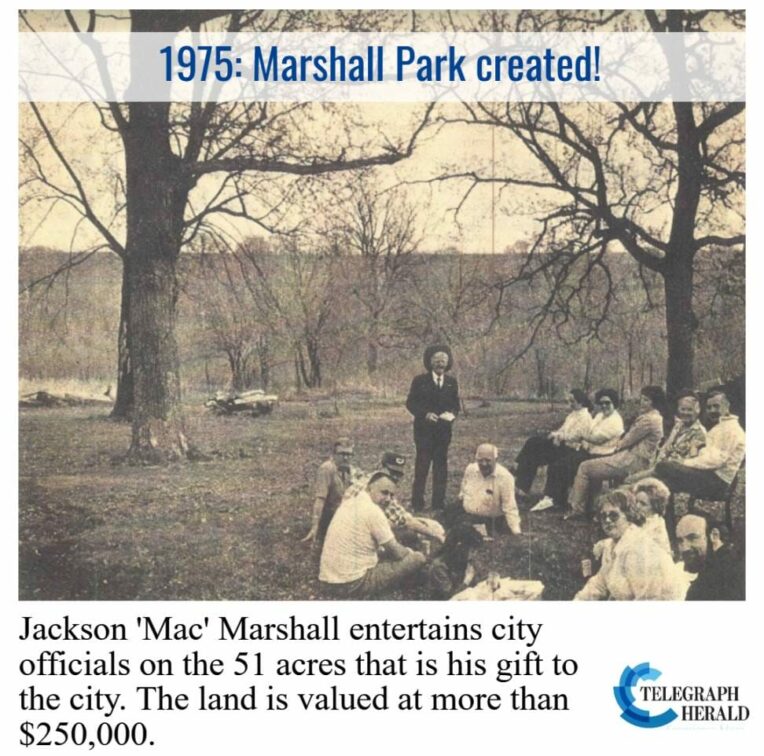
1976
Tri-State Garden Club formed
In 1976, Jim Schwarz formed the Tri-State Garden Club with the purpose of establishing a botanical garden in Dubuque and learning about gardening together. Also, at that time, Frank Hardie had an interest in establishing an arboretum. A collaboration began.
1980
City leases 16 acres of land
The Dubuque Parks Department initially leased 16 acres of Marshall Park to seven Tri-State Garden Club members (Jim Schwarz, Gene Heinemann, Mel Gottschalk, Ambrose Hoeger, Marlyn Bausman, Jack Frick, Frank Hardie) with each member contributing $20. These visionary volunteers started it all by planting the trees, bushes and plants, and erecting fences and arbors.
The first officers of the association:
- Frank Hardee, President
- Jim Schwarz, Vice-President
- Mel Gottschalk, Secretary
- Ambrose Hoeger, Treasurer
At the time, there were just two structures on the property:
- Marshall's farmhouse
- an old hay barn with a lean-to cowshed
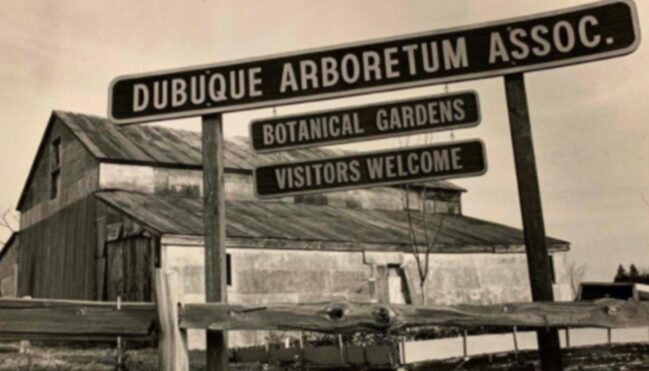
The Dubuque Arboretum & Botanical Gardens had begun.
1981
Nurseries donated plants + barn renovation
- Several nurseries donated rose plants.
- Rosarians were Ambrose and Dottie Hoeger and Mel Gottschalk.
- Klehm Nursery (in Rockford) donated 109 peonies and 50 varieties of hostas.
- Water was carried in gallon jugs to water the plants.
- Renovation of the barn into a visitor center began. Ron Jungers was the designer and constructor of the project.
1982
Volunteers began to build and plant
- Gene Heinemann quickly became the leader of the ongoing projects. And Gene and Jim Schwarz took many plant and tree acquisition trips.
- Volunteers built a rail fence; planted bushes and trees; drilled a well; gutted and remodeled the barn; and removed the old cow shed. [Photos below.] Gene Thompson and Bill Vandewill were major players in the outdoor projects.
- The first 8 raised annual beds, edged with wood, were planted.
- The Jodi Bausman Memorial Garden was created with prairie grasses, wildflowers, and old garden roses: Prairie Garden
- The barn loft was roughed in and restrooms were completed.
- The interior of the barn was gutted and a floor was put in as well as a view deck.
- July 4, 1982, brought 100 cars to the first fundraising event!
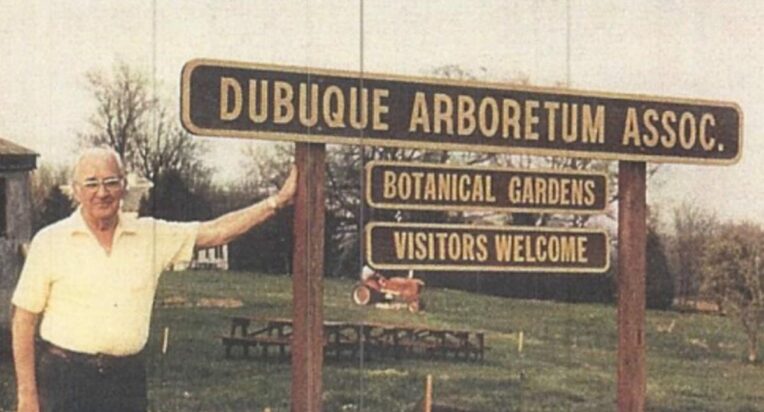
Frank Hardie, first Dubuque Arboretum Association President.
1983
Leadership + Greenhouse + Plantings
New officers were elected:
- Gene Heinemann, President
- Ted Kopper, 1st Vice-President
- Dave LaRue, 2nd Vice-President
Membership grew to 144.
A greenhouse was added on the south wall of the Visitor Center. Jim Schwarz (in charge of growing) donated the greenhouse.
More plantings were added:
- 8 more raised annual beds
- 7 perennial beds (the lower perennials)
- Lilac bushes
- Conifers on the berms
- Northern-grown azaleas
1984
Volunteers + More Plants + A Wedding
Volunteers Ambrose Hoeger and Mel Gottschalk were spending about 60 hours per week (each) tending the rose garden.
We were designated by AARS as an All-American Rose Garden Selections Public Display Garden.
Hard-core volunteers came to work sessions twice a week, doing what was needed indoors and out.
The McAleece Center was built.
Donations from local businessmen and others were published in the newsletter under the "Good Guys Directory" as givers of good gifts.
Some members planted special gardens:
- Fred Spahn's Iris Collection (along with Dick Froehn).
- John Beren's Gladiolus.
- Gene Coffman's Viburnums.
The first wedding was held in the Arboretum.
1985
Visitor Center created
After completely renovating an old barn into a visitor center for guests, a new foundation was poured in 1985, and a porch, offices, restrooms, and a meeting room were created. Ron Jungers designed and spearheaded this construction and went on to build the wedding gazebo and round shade structure in the Hosta Garden.
In June, the third annual Tri-State Lawn & Garden Expo was held featuring mini-workshops, live music, and food.
A recognition dinner honoring volunteers had to go to two sessions (Noon + 5:30p) because there were so many!
The Fall Festival brought out visitors for demonstrations, tours, entertainment, artists, children's activities, goodies to eat, and garden produce to purchase.
1986
GARDENER magazine features the DABG
The cover of THE GARDENER magazine was a full-color photo of the Botanical Gardens. Ambrose Hoeger wrote the cover story, a 2-page article with many black-and-white photos promoting the Dubuque Arboretum.
A map of the gardens was produced for visitors with ads on the back for 26 different Dubuque businesses.
The fourth annual Tri-State Arboretum Expo featured four different musical groups playing in the Gazebo on each of two days, 9 different educational programs, food, and fun.
Below: Gottschalk Tri-Level Water Feature (left); Rose Garden in Summer (right).
1987
First burnoff + more plantings
The first prairie burn-off of the Jodi Bausman Memorial Prairie Garden (pictured just below) took place in April.
The DABG Library received 50 books in memory of Larry Taylor.
250 Oriental and Asiatic lilies were planted.
Jim Schwarz donated more than 300 new hostas.
In September, we celebrated "Arboretum Days" with food, a raffle, a Sundown Mountain ski pass, a bake-and-craft sale, a magician, and face painting.
In November, "Ambrose and Dotty Days" brought volunteers out to help winterize roses (pictured below at left). Aerial view of Roses in Summer (pictured below at right).
1988-1990
Waterfall + more plantings + technology
Many woodland wildflowers were planted by John and Cheryl Schwind.
New Perennial Gardens (above the Rose Garden) were created.
A new scented Geranium Collection was planted between the parking lot and roses.
Volunteers began construction of the Waterfall Gardens, a 9-foot waterfall (Marlyn's Falls). The amount of rock is amazing.
Several Scout projects cleared trails and constructed bridges. The Sea Scout Cadet League and several parents helped clear brush, trees, and branches for a new service road at the top of the gardens.
New Perennial Gardens were planted above the Rose Garden.
The office acquired a computer, requiring better heating and air conditioning in the building. Mary Coffee was then-secretary to Gene Heinemann.
The Arboretum is growing: we recorded 150 volunteers, 35,000 visitors, and 28 weddings.
1989
Greenhouse + trellises + deck + porch
A greenhouse was added to the side of the McAleece Building.
Trellises were added at entrances to the Hosta Shade Garden and the Jodi Bausman Memorial Garden.
The Visitor Center deck and Hafeman Veranda were completed.
1991
Amphitheater + Music in the Gardens + Veterans Memorial
The Packard Pavilion Amphitheater was built by Ron Jungers.
Music in the Gardens (our free Sunday concerts) began.
The All Veterans Memorial was dedicated.
1992
Sounds + an Herb Garden + pools + water lines + a greenhouse
- Sounds in the Garden: 9 outdoor speakers were added. A gift from Delores Petrakis in memory of John Petrakis.

- a Formal Herb Garden was created.
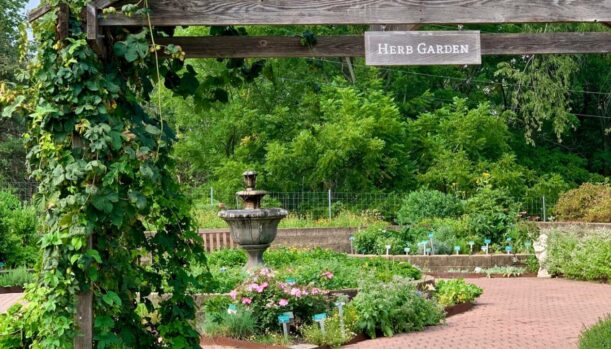
- Quiet Pools with benches were finished.
- Water lines were extended to the Veterans Memorial and the Dubuque Noon Lions Club Playground.
- Construction began on the big greenhouse behind the McAleece (30’ x 48’ x 18’). Completed in 1993.
1993
Japanese Garden planning + a Butterfly Garden + the Herb Society of Dubuque
Jim Grady spearheaded this garden.
- Hoichi Kurisu, from Portland, Oregon, came to help design a planned Japanese Garden.
- A raised butterfly garden, like one seen in England, was constructed in the annual bed area.
- The Herb Society of Dubuque began.
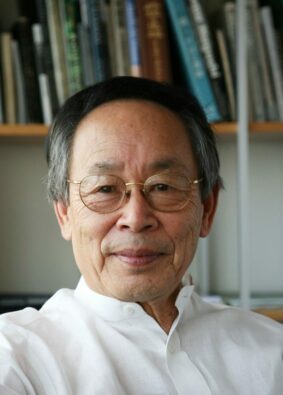
1994
Japanese Garden construction began
The first phase of the Japanese Garden was underway with major excavating to shape the pond area and begin building peninsulas and three waterfalls. A well was drilled for the waterfalls and pond.
APPROVED + BUILT: Visitor Center expansion
A new 24-foot addition was added to the west side of the Visitors Center. It now houses the Garden Room, upstairs offices, a conference room, and basement storage.
1995
Two "firsts": a conifer collection + HerbFest
- The Walter Conifer Collection (more than 400 dwarf and rare conifers) was donated as a memorial by the Walter family of Illinois.
- The first HerbFest was held.
1996
A second Conifer Collection was added + more construction
- Dennis Hermsen donated 154 conifers to complement the Walter Conifer Collection.
- Construction began on a large-equipment storage building (Cleary Building, located behind the McAleece building) measuring 50’ x 98’. Completed in 1997.
1997
Another storage building was constructed
The Tri-State Garden Club erected a 24’ x 24’ storage building in the northeast corner of the grounds.
1998
Roses + McKay Memorial Plaza
- Marlyn Bausman took over as Head Rosarian. There were 900 rose plants by that time.
- McKay Memorial Plaza was constructed. The porch and steps were rebuilt with stone. The parking lot was enlarged and paved with asphalt, along with the service road.
- Judy Curnan was a major volunteer-worker during this time.
1999
The Visitor Center was renamed
- The Visitor Center was renamed The Heinemann Center after the passing of Board President Gene Heinemann in November 1998.
- Bob Buelow became the president of the Arboretum.
- Iris beds, the butterfly bed, and several annual beds were edged in limestone.
2000
First Children's Party + Koi Pond filled
- The first Children’s Party was held.
- The Japanese Pond was filled with water and seven koi.
2001
A bridge + roads + a garden
- A zigzag bridge and new parking lot were added to the Japanese Garden.
- 32nd Street and Arboretum Drive were relocated due to the extension of the NW Arterial.
- The Peter Rabbit Children's Garden was established.
2001
The Formal English Garden was created
The concept of the English Garden was developed in 2001 as a tribute and memorial by the children of Georgette (1913-1989) and Frank Hardie (1911-2000), first president of the Dubuque Arboretum. The English Garden was completed and dedicated in July 2004.
2003
The Memorial Walkway was created
A new memorial brick walk was extended from the parking lot to the Herb Garden.
2004
English Garden completed + new president
- The English Garden was completed and dedicated to Georgette and Frank Hardie. Steve Hardie currently cares for this garden.
- Jack Frick became the Arboretum's president.
2005
The entrance gate received a makeover
The stone pillars and metal arboretum sign were erected at the entrance gate.
2015
The Garden of Eat'n was created
Some call it a "food forest," this aptly-named garden (Garden of Eat'n) is an educational display of a sustainable garden ... demonstrating foods we can grow beautifully in our own backyards.
2017-2018
The Heinemann Center was remodeled
With the most recent Heinemann Center remodeling, the building (which houses the the Visitor Center, the administrative offices, and the Gardens Gift Shop):
- has more historically-accurate, barn-like features (including a weathervane on the cupola),
- provides better handicap access, and
- is more energy-efficient.
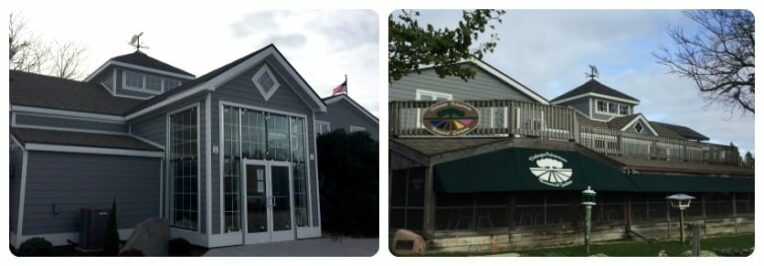
2019
Conifer Collections + Garden added
- The Edna Mozena Conifer Collections began.
- The Hydrangea Garden was created. [Donated and maintained by the Dubuque Master Gardeners.]
2021
Improvements continued
- The big greenhouse received an updated ventilation system composed of fans and louvers.
- The Packard Pavilion Amphitheater was power-washed and painted and wooden railings were replaced with metal ones.
- The trail leading to the Legacy Trees was paved.
- A storybook feature was added to the Legacy Tree Trail, compliments of the Dubuque Public Library.
- A cement ADA walkway was added from the lower parking lot all the way down to the pond, thanks to a DRA grant.

